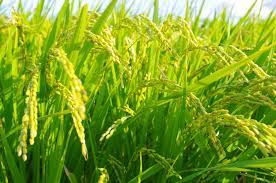- The Agriculture Minister recently inaugurated the Krishi Integrated Command and Control Centre (ICCC) at Krishi Bhavan in New Delhi.
What is the Krishi ICCC?
- The ICCC uses a variety of IT applications and platforms to provide actionable information and facilitate informed decision-making.
- 8 big LED screens present critical information in graphical style, including crop yields, production, drought conditions, cropping patterns, and important trends.
- The dashboard provides insights, warnings, and comments on agricultural schemes, programmes, projects, and initiatives, allowing stakeholders to access full information.
Data utilised by Krishi ICCC
The ICCC will consolidate geospatial data from various sources, including
- plot-level data from Soil Survey,
- weather data from the India Meteorological Department (IMD),
- sowing data from Digital Crop Survey,
- farmer-related data from Krishi MApper,
- geo-fencing and geo-tagging of land, and
- market intelligence from the Unified Portal.
Objectives and Functionality
- complete Monitoring: The ICCC seeks to enable complete monitoring of the farm sector by combining geospatial data from multiple sources such as remote sensing, meteorological data, soil surveys, and market intelligence.
- Decision Support: Integrated visualisation enables policymakers and stakeholders to make quick and efficient decisions based on real-time data and analysis.
Farmer-Specific Advice and Practical Applications
- Individual Farmer advises: The ICCC has the ability to generate individual farmer-specific advises using apps such as Kisan e-Mitra (a chatbot built for PM-Kisan recipients), which use AI and machine learning to tailor recommendations based on farmer data.
Practical Applications:
- Farmer’s Advisory: GIS-based soil mapping, soil health card data, and weather information may all be visualised to provide customised crop selection and agricultural management advice.
- Drought Actions: By correlating yield data with weather patterns, we may take preventative efforts to lessen the impact of droughts.
- Crop Diversification: Analysing crop diversification maps can assist identify places that are appropriate for diverse cropping, hence increasing agricultural productivity.
- Farm Data Repository: The Krishi Decision Support System (K-DSS) serves as an agriculture data repository, enabling evidence-based decision-making and the creation of tailored advice for farmers.
- Validation of Yield: The ICCC provides the validation of yield data gathered through diverse applications, ensuring correctness and reliability.
Source: https://indianexpress.com/article/explained/iccc-integrated-farm-data-dashboard-for-customised-solutions-9235150/#:~:text=The%20ICCC%20will%20enable%20comprehensive,sowing%20data%20from%20Digital%20Crop

